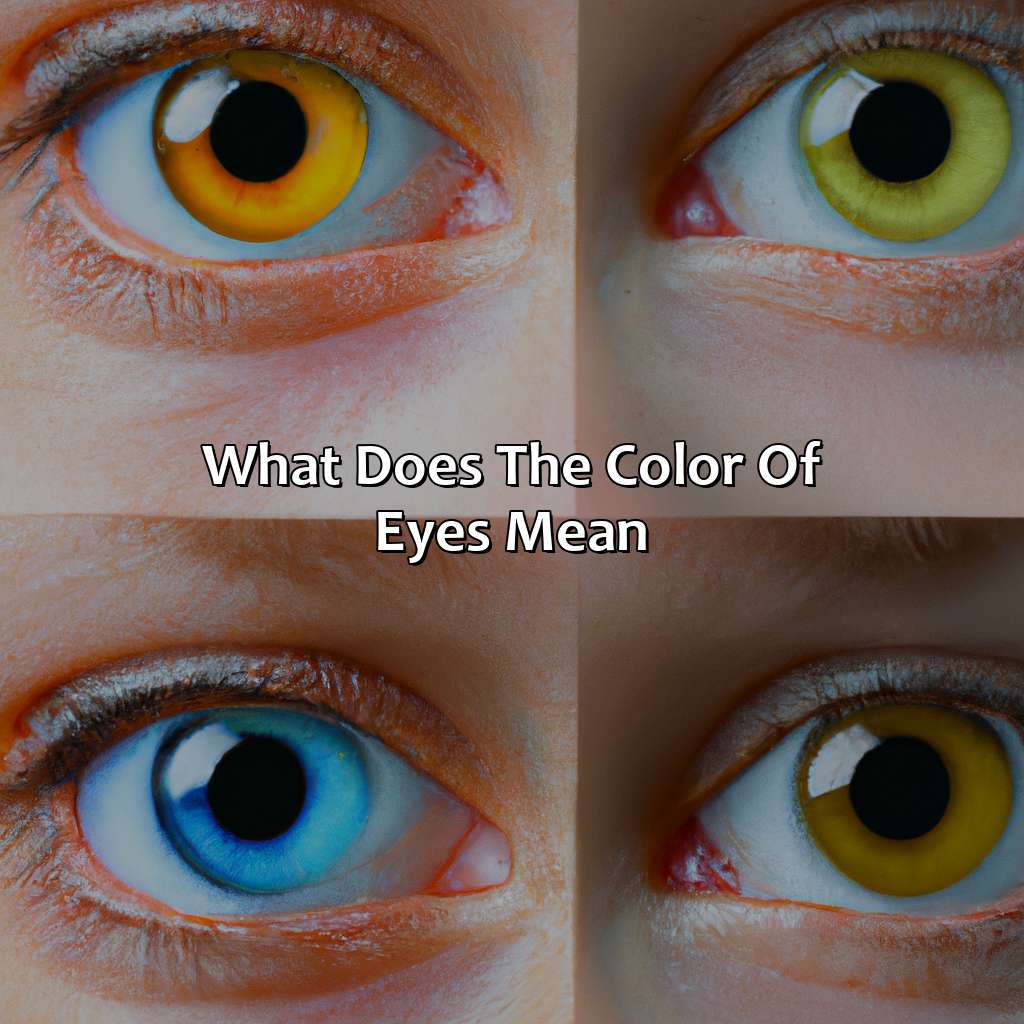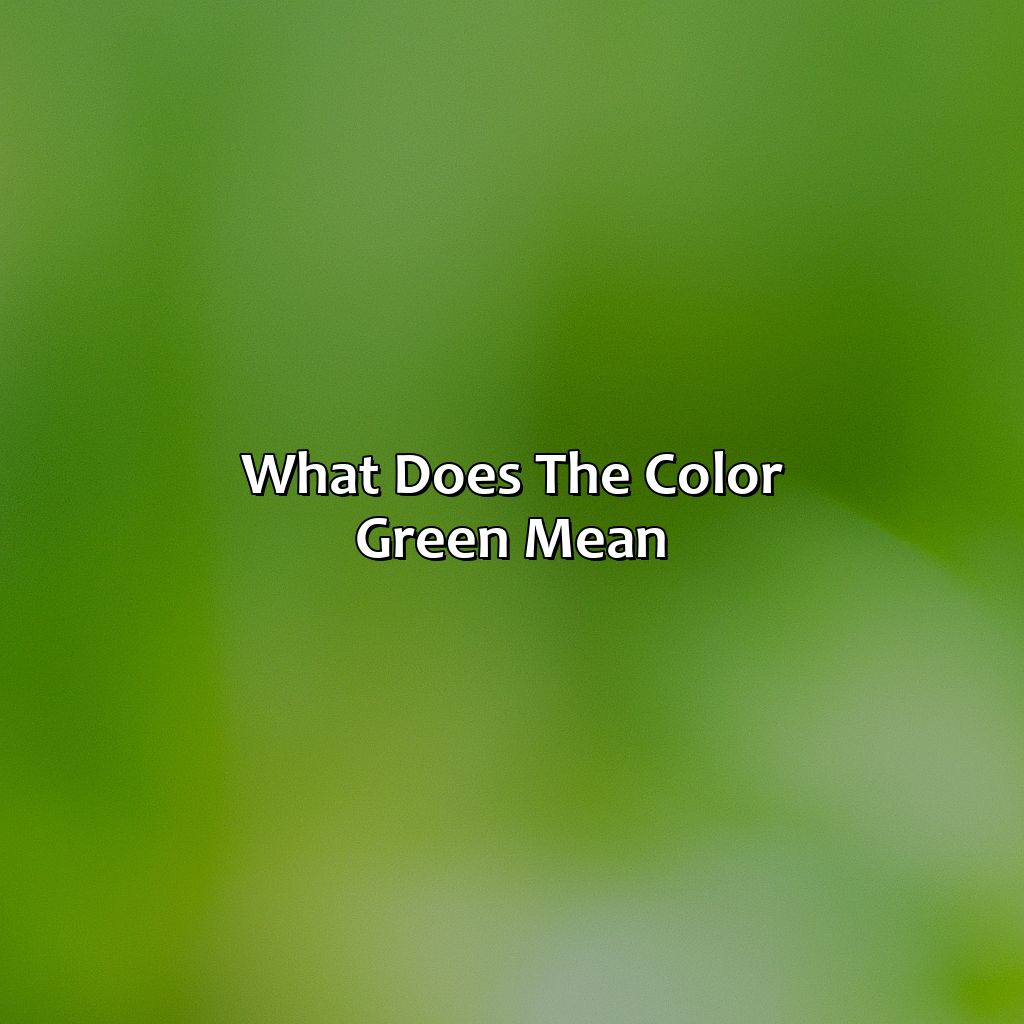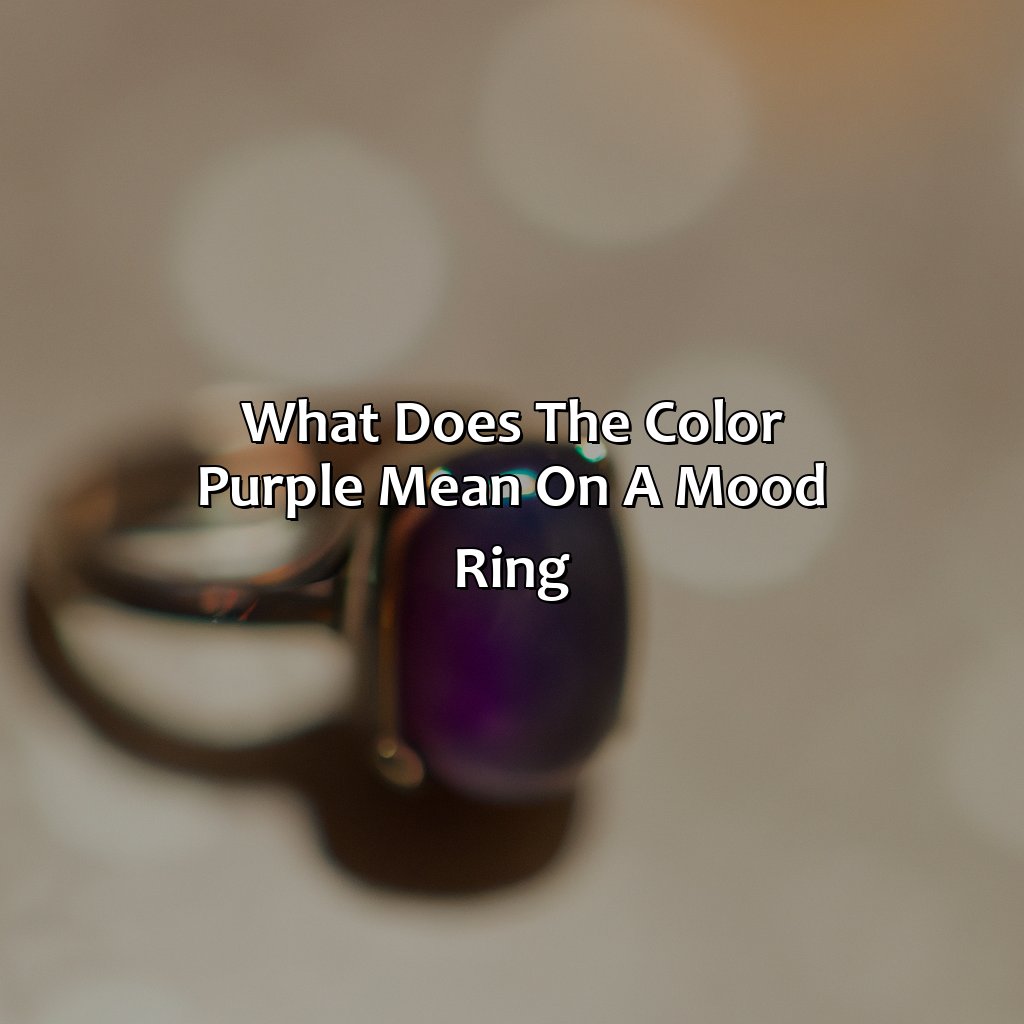Key Takeaway:
- Purple is a color that is associated with creativity, imagination, spirituality, intuition, ambition, power, sensitivity, and emotion. People with a preference for purple are often artistic, unconventional, and in tune with their emotions.
- Purple has a historical significance as a royal color, which signifies wealth, luxury, and nobility. Modern interpretations of purple include wisdom, dignity, and independence.
- In different cultures, purple has varying meanings. In western culture, purple is associated with royalty, wealth, and sophistication, while in eastern culture, purple is a color of mourning. In certain religions, such as Catholicism, purple is associated with penance and preparation.
The Color Purple and Personality
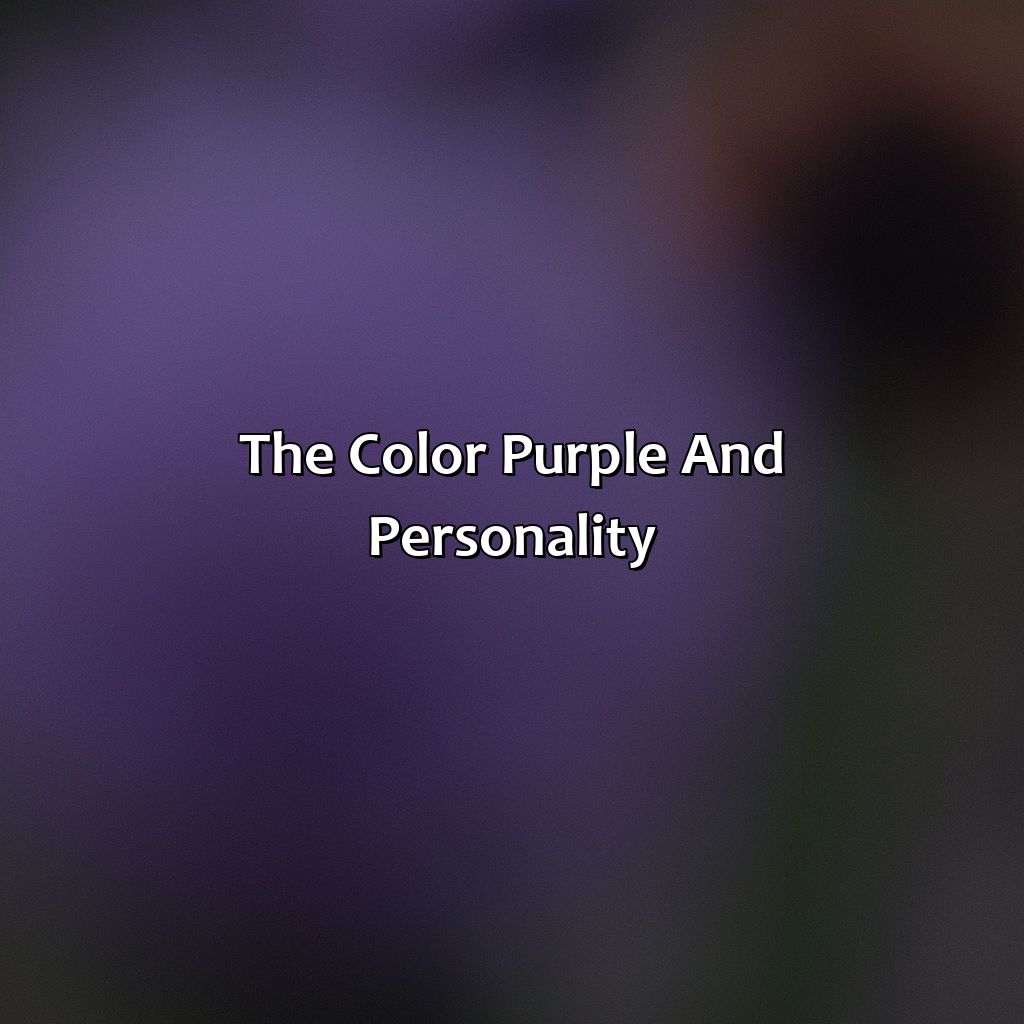
Photo Credits: colorscombo.com by John Miller
To know your personality better, explore the symbolism of the color purple. This article looks at the different hues of purple and their meanings in culture, history, religion, art, dreams, and nature. We’ll explore the introduction to the meaning of colors, covering color psychology and symbolisms of various colors.
Introduction to the Meaning of Colors
Colors have a significant impact on our emotions and mindset. Color psychology is the study of color symbolisms and the meaning of colors in stimulating psychological responses. Each color has different meanings, associations, and cultural interpretations that affect our personalities, moods, and behavior. Understanding color psychology can help us use colors effectively to communicate our personalities and create harmonious environments.
From ancient emperors to modern-day style icons, purple has always symbolized nobility and refinement.
Purple: The Color of Royalty
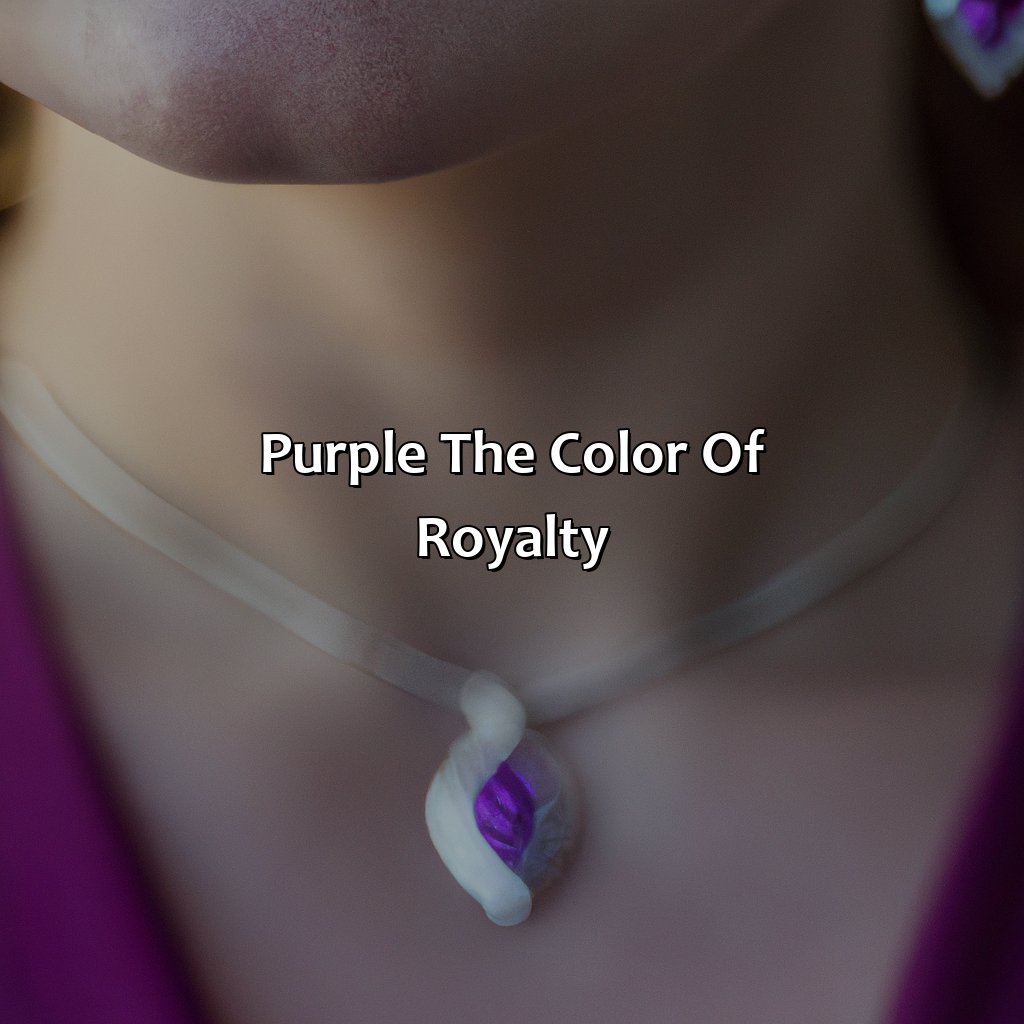
Photo Credits: colorscombo.com by Douglas Anderson
Throughout history, the color purple has been linked with royalty, nobility and luxury. It has a rich historical significance and has been used to denote luxury and power. The modern interpretation of purple is more diverse and can be associated with creativity, independence, and individuality. Despite this, the association with royalty remains strong and the color is still seen as a sign of decadence and sophistication.
Purple has been considered a royal color for centuries, dating back to ancient Rome where only the emperor was allowed to wear it. In the Middle Ages, purple pigments were so expensive that they were reserved for the wealthiest members of society, including kings and queens. This association with royalty has continued into modern times, with purple being a symbol of power and wealth.
However, the meaning of purple has expanded beyond its royal connotations. It is now associated with creativity, individuality, and independence. It is a complex color that is often used to represent the blending of two opposing colors – blue and red – to form a unique shade that is both calming and energizing. Purple is also believed to have spiritual and mystical qualities, which has led to its use in meditation and other spiritual practices.
A true fact is that in the 1860s, the first synthetic purple dye was created, making the color more accessible to the general public. It was named mauveine, after the French word for “mallow,” due to the fact that the dye was created from the waste product of the mallow plant. This invention kickstarted the fashion for purple clothing and household items in the Victorian era.
Personality Traits Associated with Purple
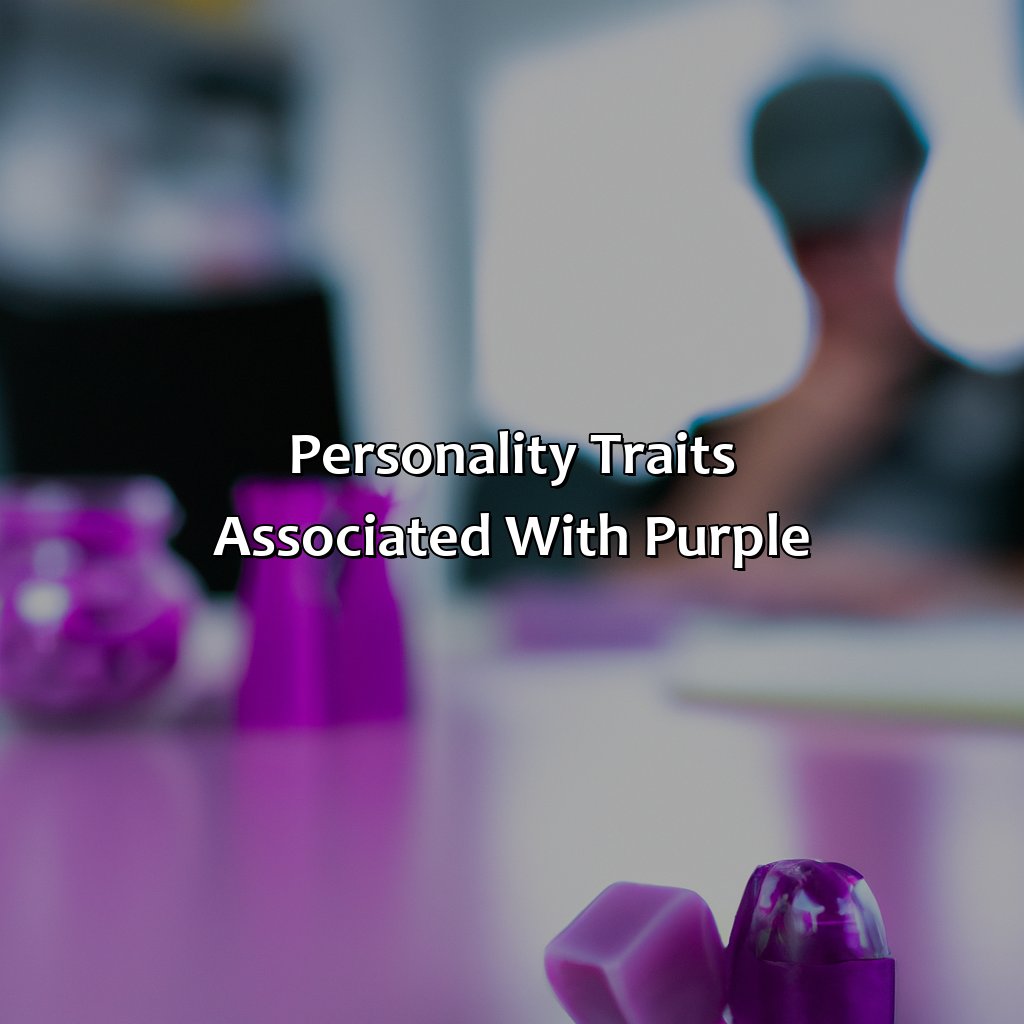
Photo Credits: colorscombo.com by Raymond Wilson
Purple is often associated with creativity, intuition, and ambition. Those who favor purple tend to enjoy using their imagination, connecting with their spiritual side, and seeking power. Sensitivity and emotion are also traits associated with purple personalities. In terms of fashion, purple is often chosen by those who want to make a statement as it is considered a bold and unique color.
Purple personalities may also be seen as mysterious and deep-thinkers. They are often drawn to abstract ideas and seeking deeper meaning in their lives. When it comes to relationships, purple personalities value emotional connections and can be quite sensitive to the emotions of others.
To embrace the traits associated with purple, consider incorporating elements of the color into your life. This could mean incorporating purple clothing or décor, practicing mindfulness or meditation to connect with your spiritual side, or exploring your creativity through hobbies or artistic pursuits. Taking time to reflect on your emotions and connect with others on an emotional level can also help you tap into the sensitivity and intuition associated with purple.
Purple in Different Cultures
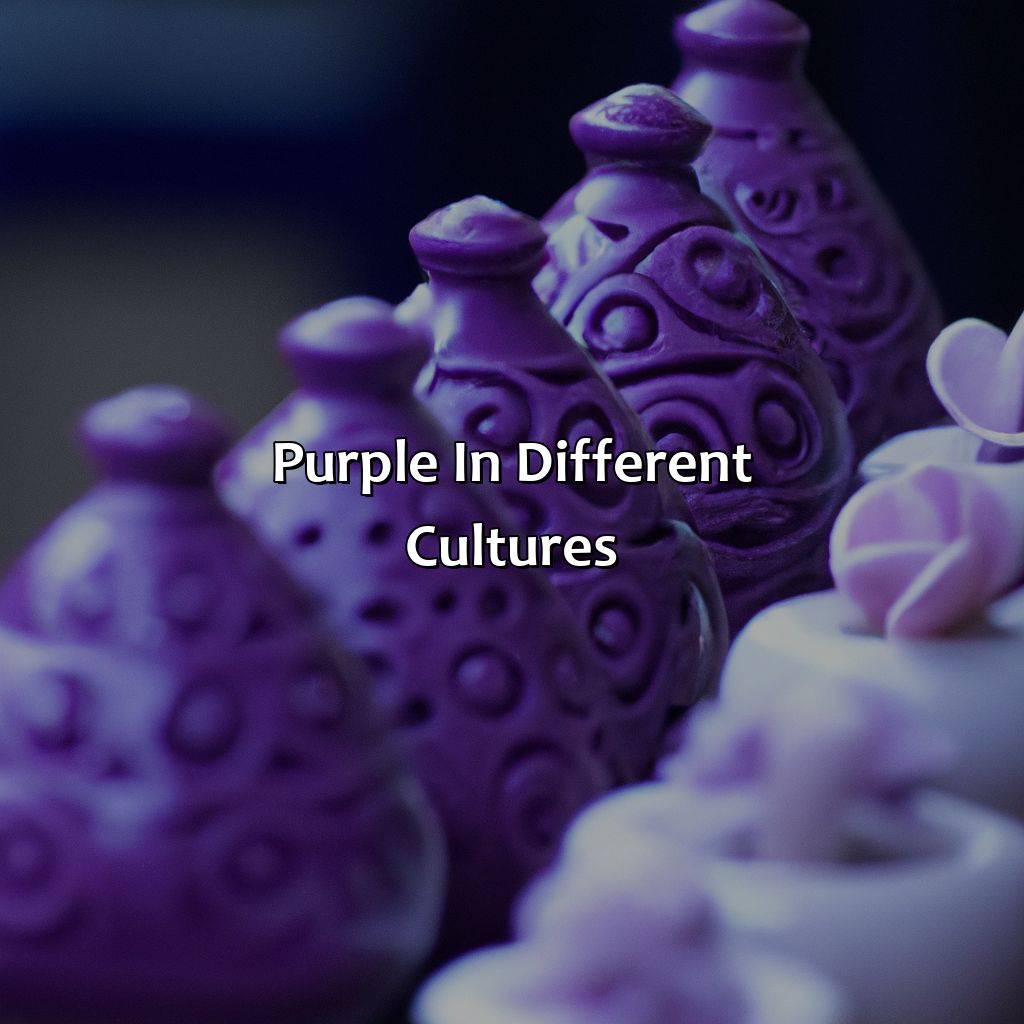
Photo Credits: colorscombo.com by Roy Wright
Purple Across Various Cultural Contexts
Purple has widely different meanings across different cultural contexts. In Western cultures, purple is often associated with nobility, wealth, and sophistication. In Eastern cultures, purple is a symbol of spirituality, mysticism, and royalty. In religion, purple is often linked to spirituality and respect.
Moreover, royal families have historically used purple as a symbol of their power and status. In Christianity, purple is associated with Lent and Advent, and it is used to represent penance and preparation.
Interestingly, in ancient Egypt, purple was a symbol of mourning. The color was associated with death and the afterlife, and it was believed that purple could help bring peace to the deceased.
Pro Tip: While purple has varied meanings across cultures, it is essential to consider the context before using this color in design or communication. Understanding the cultural associations can help avoid unintended messages.
How to Incorporate Purple into Your Personality

Photo Credits: colorscombo.com by Zachary White
Purple is a powerful color that can add depth and richness to your personality. Embracing this color can make a great impact on how you present yourself to others. To incorporate purple into your personality, you can start by trying the following:
- Fashion and accessories: Add purple clothing or accessories to your wardrobe, be it a scarf, a purse, or shoes. Purple can add an element of surprise and sophistication to your overall look.
- Home decor: Incorporate purple shades into your home decor. You can go for purple curtains, throw pillows, or bedspreads. You will be surprised by how much this can change the ambiance of your living space.
- Color therapy: Use purple in your meditation or breathing exercises, which can promote a sense of calmness and relaxation, which can help you feel more centered and focused. It can also help you in releasing any emotional blockages that you may have.
In addition, it’s important to note that the intensity and shade of purple can also communicate different meanings. For example, a muted or lavender shade of purple can suggest a more relaxed, softer personality, while a darker shade can suggest a stronger, more assertive personality.
A pro tip to keep in mind is to experiment with different shades of purple and see what works best for you. Also, take into consideration the occasion or situation that you want to incorporate purple into. In some settings, purple may not be appropriate.
Incorporating purple into your personality can be a fun and exciting way to express yourself. By trying different fashions, home decor, and color therapy techniques, you can find the right balance of purple to add depth and richness to your overall persona.
5 Facts About the Personality Meaning of the Color Purple:
- ✅ Purple is associated with creativity, spirituality, and intuition. (Source: Color-Meanings.com)
- ✅ Those who are drawn to the color purple are often imaginative, sensitive, and compassionate. (Source: Empowered By Color)
- ✅ In color psychology, purple is considered a calming color that can evoke feelings of relaxation and meditation. (Source: The Spruce)
- ✅ Purple can also represent luxury, royalty, and sophistication. (Source: Bourn Creative)
- ✅ Wearing or surrounding yourself with the color purple can help boost creativity and stimulate inspiration. (Source: Verywell Mind)
FAQs about What Does The Color Purple Mean Personality
What does the color purple mean personality?
The color purple is often associated with royalty, luxury, and power. In terms of personality, purple is typically associated with innovation, creativity, introspection, and spirituality.
What kind of personality does someone with a preference for purple have?
People who prefer purple in their clothing or home decor may have a creative and artistic personality. They are often imaginative and open-minded individuals who like to explore new ideas and concepts. Additionally, purple lovers may be introspective and enjoy spending time alone to reflect and recharge.
What does the shade of purple tell us about someone’s personality?
The shade of purple can give us insights into someone’s personality. Darker shades of purple, such as grape, are associated with sophistication, mystery, and drama. While lighter shades of purple, such as lavender, are associated with femininity, sweetness, and tranquility.
What does the color purple represent spiritually?
Purple has long been associated with spirituality and mystical beliefs. It is often used in meditation and spiritual practices as it is believed to promote inner awakening, intuition, and connection with one’s higher self.
What does it mean if someone dislikes the color purple?
If someone dislikes the color purple, it does not necessarily mean that they have a negative personality. People have different preferences and associations with colors, and there are no universal rules for how color preferences relate to personality traits.
Can wearing purple affect someone’s personality?
Wearing a certain color can influence someone’s mood and behavior, but there is no scientific evidence that wearing purple can directly change someone’s personality. However, if someone identifies strongly with the color purple, wearing it may enhance their confidence and self-expression.




